Talk It Out: Debunking Therapy Myths and Embracing Mental Wellness

Therapy is a powerful tool for mental well-being, but misconceptions and myths surrounding it often prevent people from seeking help. Here, we address some of the most common therapy myths and highlight the importance of embracing mental wellness.
Myth 1: Therapy is Only for People with Serious Mental Health Issues
Fact: Therapy is beneficial for anyone looking to improve their mental well-being, whether or not they have a diagnosed mental health condition. It provides support for dealing with life stressors, relationship challenges, personal growth, and self-discovery. Therapy is a tool for everyone, regardless of the severity of the issue.
Myth 2: Therapists Will Just Tell You What to Do
Fact: Therapy is a collaborative process. While therapists offer guidance and support, they don’t provide direct instructions on how to live your life. Instead, they help you explore your thoughts and emotions, enabling you to develop your own strategies for coping, problem-solving, and decision-making.
Myth 3: Therapy is Only About Talking About the Past
Fact: While exploring the past can be an important part of therapy, the focus is often on the present and future. Therapists help clients understand how past experiences may influence current behavior, but the goal is to create strategies for moving forward and making positive changes in life.
Myth 4: Therapy Takes Years to Work
Fact: While therapy can be a long-term process for some people, others see improvements relatively quickly. The effectiveness of therapy depends on various factors, including the type of therapy, the client’s engagement, and the nature of the issue being addressed. Some therapies, such as Cognitive Behavioral Therapy (CBT), are designed to bring noticeable improvements in a short time frame.
Myth 5: Only ‘Weak’ People Go to Therapy
Fact: Seeking therapy takes strength, not weakness. It’s a proactive step toward self-improvement, resilience, and personal growth. By acknowledging the need for help, individuals show courage and a willingness to invest in their mental health and well-being.
Myth 6: Therapists Will Judge You
Fact: A trained therapist’s role is to provide a safe, non-judgmental, and supportive environment. Therapists are professionals who are trained to listen empathetically and to help clients explore their feelings without criticism. Therapy is a confidential space where you can express yourself freely and openly.
Myth 7: Therapy is Too Expensive and Not Worth the Cost
Fact: While therapy can be costly, many therapists offer sliding-scale fees based on income, and insurance often covers mental health services. The cost of therapy can be seen as an investment in your long-term well-being. The benefits—such as improved mental health, relationships, and overall life satisfaction—often outweigh the financial cost.
Myth 8: Therapy is Only for Talking About Your Problems
Fact: Therapy isn’t just about focusing on problems—it’s about growth, learning, and positive change. It can involve developing coping skills, enhancing self-awareness, creating healthy habits, and setting personal goals. Therapy can help you build a toolkit to improve your resilience and thrive in life, not just solve problems.
Myth 9: You Need to Be Mentally ‘Ill’ to Go to Therapy
Fact: Therapy is not only for those with mental illness. It’s for anyone who wants to understand themselves better, navigate difficult emotions, or improve their relationships. Therapy is about wellness, and taking care of your mental health is as important as caring for your physical health.
Myth 10: Therapy is for “Talking it Out” Only
Fact: While verbal expression is a key aspect of therapy, it isn’t the only way to work through challenges. Many therapists incorporate creative techniques, such as art, journaling, and mindfulness, into the process. Therapies like Cognitive Behavioral Therapy (CBT) and Dialectical Behavior Therapy (DBT) also focus on changing thought patterns and behaviors.
Embracing Mental Wellness
Breaking through the myths surrounding therapy opens the door to the profound benefits of seeking help and prioritizing your mental health. Mental wellness is about understanding yourself, processing emotions, building resilience, and fostering positive relationships. Just as physical health requires regular attention, so does mental health.
By seeking therapy, you’re taking a step toward personal growth, healing, and overall well-being. Therapy isn’t about being “fixed”—it’s about learning to navigate life’s challenges with greater awareness, self-compassion, and empowerment.
If you’re considering therapy, remember that you’re not alone, and it’s a brave and transformative journey toward becoming your best self.
How to Incorporate Meditation into Your Busy Schedule

1. Start Small: Begin with 5 minutes a day and increase as you get comfortable.
2. Set a Consistent Time: Meditate at the same time daily, like morning or before bed.
3. Use Guided Meditations: Apps like Headspace or Calm provide short, structured sessions.
4. Meditate During Transitions: Practice mindfulness while waiting or commuting.
5. Practice Mindfulness Throughout the Day: Incorporate mindfulness in activities like eating or walking.
6. Create a Meditation Space: Find a quiet spot for short sessions.
7. Use Technology: Set reminders and track progress with meditation apps.
8. Be Flexible: Don’t stress if you miss a day—small sessions count.
With these simple steps, meditation can easily become part of your daily routine.
You’re Not Alone: Talking Openly About Mental Health Matters

Talking openly about mental health is crucial in breaking down the stigma and creating a more supportive and understanding environment for everyone. Here’s why it matters:
1. Reduces Stigma
Mental health conversations help normalize the challenges people face. When we talk openly, we reduce the shame and stigma that often surrounds mental health issues, encouraging more people to seek help.
2. Fosters Support
Talking about mental health opens the door for others to share their experiences and support one another. Whether it’s through family, friends, or support groups, sharing our feelings can create a network of empathy and understanding.
3. Promotes Understanding
Conversations help us understand the variety of experiences people go through. Mental health issues affect everyone differently, and by talking about it, we gain a deeper appreciation for the challenges others face.
4. Encourages Help-Seeking
Open discussions can help those struggling with mental health issues realize they are not alone, making it easier for them to seek professional help, therapy, or counseling without fear of judgment.
5. Strengthens Connections
When we talk about our mental health, we build stronger relationships. Vulnerability fosters connection and trust, whether with friends, family, or coworkers.
6. Increases Awareness
By discussing mental health, we increase awareness about the resources and tools available to manage mental health. Many people may not know what help is out there until they talk about it.
7. Self-Care and Healing
Speaking openly can be a form of self-care. Verbalizing your thoughts and emotions can help you process feelings, reduce stress, and promote healing.
8. Encourages Prevention
Open dialogue promotes mental well-being and prevention by encouraging individuals to recognize early signs of mental health challenges and address them before they become overwhelming.
9. Shifts Cultural Perspectives
When society starts to view mental health as just as important as physical health, it leads to better outcomes for everyone. Talking openly is key to shifting these cultural attitudes.
By sharing our mental health struggles and triumphs, we create a more inclusive and compassionate world. Remember, you’re not alone—talking about mental health makes a difference.
The Link Between Physical Activity and Mental Well-being

Physical activity is not just beneficial for the body, but it also has a profound impact on mental well-being. Here’s how regular exercise can boost your mood and mental health:
1. Reduces Stress and Anxiety
Exercise helps reduce levels of stress hormones like cortisol, while promoting the production of endorphins, which are chemicals in the brain that act as natural mood lifters. Regular physical activity can lower anxiety and promote a sense of calm.
2. Improves Mood
Physical activity increases the production of neurotransmitters like serotonin and dopamine, which are key players in regulating mood. Exercise is often used as an effective strategy for combating symptoms of depression and enhancing overall mood.
3. Boosts Self-Esteem
Engaging in physical activity, especially when setting and achieving fitness goals, can significantly boost self-esteem and body image. The sense of accomplishment from completing a workout or making progress toward fitness goals helps build confidence.
4. Enhances Sleep Quality
Regular exercise improves the quality of sleep, helping people fall asleep faster and enjoy deeper rest. Good sleep is essential for mental health, as poor sleep can exacerbate anxiety and depression.
5. Increases Energy Levels
Exercise boosts overall energy levels by improving circulation, oxygenating the body, and improving cardiovascular health. More energy translates to better productivity and an improved ability to manage daily stress.
6. Promotes Cognitive Function
Physical activity increases blood flow to the brain, improving cognitive functions like memory, focus, and problem-solving. It also stimulates the release of brain-derived neurotrophic factor (BDNF), which supports brain health and mental clarity.
7. Provides a Distraction
Exercise offers a healthy distraction from negative thoughts, ruminations, and worries. Whether it’s through running, yoga, or weightlifting, physical activity helps individuals focus on their movements and the present moment.
8. Social Connection
Engaging in physical activities, particularly group exercises or sports, provides an opportunity for social interaction. Building relationships through physical activity can reduce feelings of isolation, which is often linked to mental health issues.
9. Improves Resilience
Consistent physical activity builds mental resilience. The discipline and perseverance required to maintain a fitness routine can translate to greater emotional strength and better coping strategies during times of mental stress.
10. Reduces Symptoms of Mental Health Conditions
Exercise has been shown to be effective in reducing the symptoms of various mental health conditions, including depression, anxiety, PTSD, and ADHD. It serves as an adjunct to traditional therapies, improving overall well-being.
By integrating physical activity into your routine, you can experience not only physical health benefits but also significant improvements in your mental well-being. Whether it’s a daily walk, yoga, or a more intense workout, movement can be a powerful tool for maintaining a balanced and healthy mind.

As a experienced psychotherapist, I provide a supportive, safe, and client-centered approach tailored to your unique needs. The therapeutic relationship is fundamental to our work, and I am committed to fostering a confidential, non-judgmental environment where you feel comfortable expressing yourself and exploring personal growth
